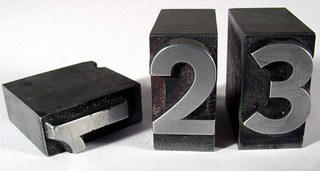 Sometimes on Twitter I’ll see fellow writers post things like “1k down and it’s not even 10am! Not a bad morning,” and “Finally hit 60k on this manuscript!” and “Trying to eek out another 5k this weekend.” When writing, word counts can be a good way to keep track of the work you’ve done and the work you have left to do. It’s satisfying to see those numbers creep up and get you closer to a complete story.
Sometimes on Twitter I’ll see fellow writers post things like “1k down and it’s not even 10am! Not a bad morning,” and “Finally hit 60k on this manuscript!” and “Trying to eek out another 5k this weekend.” When writing, word counts can be a good way to keep track of the work you’ve done and the work you have left to do. It’s satisfying to see those numbers creep up and get you closer to a complete story.
Confession: I don’t do word counts.
If you asked me, “Annie, how many words is The Chance You Won’t Return?” I’d get all shifty-eyed and say, “Oh, um, like 80? 80k? That’s a number, right?” And really, I can only estimate that from when I was adding my word count to my queries. My current WIP? I honestly have no idea what that word count is. I think I’m about a third of the way through the story, but I have no idea what that means for how many words will end up on the page.
I can totally see how keeping word counts and setting word count goals is a fantastic way to keep motivated and have a better sense of how your novel is growing. But I get more motivated by seeing sections done and by knowing that the scene that’s been in my head for a while is finally written. Maybe it’ll take a hundred words or maybe it’ll take ten thousand. To me, the actual word count doesn’t mean anything in relation to what I’ve put on the page.
The first time I saw people reference word counts in relation to their own writing routine, I thought there was something wrong with me. Should I be keeping track of how many words I write when I sit down with my WIP? How much is enough? What’s normal? Aren’t 5ks road races?! But I’ve come to learn that it’s okay if I don’t track my progression by word count. It doesn’t mean I’m not getting work done or that I’m not as professional as other people. It just means that I have a different process. And with writing, there are so many different processes you can use to keep working. Don’t feel pressured to hit 2k on a given day just because someone else on Twitter has. Do what works for you and your story. Make your words count–no matter how many of them are on the page.
(image: Willi Heidelbach)
This is such great advice. I used to obsess about word count but these days I’m much more flexible and I have to say it’s done wonders for my psyche when I’m in the middle of a first draft.
Yes! The scene that has been in my head from the beginning is what I am shooting for and then I have to figure out what will be on the other side of that. It’s an uphill battle all the way!
Great post! I like to watch my word counts just so I get a sense of whether a scene is way too long, or on a larger scale to figure out if I should have gotten around to the plot by now :), but like you, I don’t find it helpful to set word count goals for the week or things like that.
Love that I stumbled across this post!
These are wonderful words of wisdom you have here. I used to track my word counts with an undying urgency. I had to know how far I had got from the last time I checked. But eventually I realized I MUST be wasting a whole lot of writing time, worrying about how many words I had already written!
So I too have kyboshed the word count thing, and just focus on getting more of those ‘That was pure awesomeness’ moments in writing!
I always felt word counts hindered the writing. You would be obsessing about packing hooptidoodle into a page instead of actually focusing on the depth of the story.
Good post. The relevance and importance of the basic idea being conveyed is far more important than the word count that does so.
When an idea needs to be expressed, some have the knack of conveying it in far lesser words whereas some need to do so in lengthier compositions. Can one imagine P G Wodehouse writing in a sms style?! Likewise when we have profound truths and events being captured, epics alone manage to do so!! The more you read them, the more you see the different dimensions of a concept conveyed in the same text.
AMEN Annie Cardi, soulmate of my heart.
well….and then you have to edit, so you’re losing word count, right? lol